Chinchilla
How Long do Chinchillas Live in Captivity & in Wild? #Lifespan
Chinchillas have been known to have a great life expectancy even in the wild, and that can be one of the prime reasons why they make an excellent choice for a pet. They can indeed be your long term companions, and that is precisely what makes them one of the much-preferred options to go with.
Contents
- 1 How Long do Chinchillas Live, and What is the Chinchillas Life Expectancy?
- 2 How Long do Chinchillas Live in the Wild?
- 3 How Long do Chinchillas Live in Captivity?
- 4 The Lifespan of Short-Tailed Chinchilla’s
- 5 The Lifespan of Long-Tailed Chinchilla’s
- 6 How to Increase a Chinchilla Life Expectancy?
- 7 Concluding Thoughts on Lifespan of Chinchillas
How Long do Chinchillas Live, and What is the Chinchillas Life Expectancy?
Chinchillas in the wild can live up to 8 to 10 years. A chinchilla in captivity with good care can live up to 15 to 20 years. The chinchillas in their native Andes Mountains in South America can live up to 10 years.

How Long do Chinchillas Live in the Wild?
Chinchilla’s life span in the wild would be around 8 to 10 years. In their native Andes Mountains in South America can for around 10 years where the atmosphere is conducive to their well-being. The average lifespan of a chinchilla would be around 10 to 20 years.
Chinchillas in the wild are native to the South American region of Chile, Bolivia, Argentina, and Peru. When living in the wild, they are likely to live for a lesser lifespan. That is primarily because of their need to stay safe from the predators and handle a wide range of issues such as looking for food and handling tough weather.
How Long do Chinchillas Live in Captivity?
In captivity, Chinchillas live for more than 15 to 20 years. If you take proper care for the chinchillas in captivity, you can find them living for more than 20 years. Chinchillas have an exception for a long lifespan for rodents. If you are looking for an appealing pet choice that lasts a longer lifetime, the chinchillas can be your best bet.
The chinchillas do not fall prey to predators when in captivity, either as pets or in a zoo. If you take proper care of your pet chinchilla and provide it with a better quality of balanced and nutritious food, they can live up to 20 years or more. If you want your chinchilla to reach that milestone, you need to take enough care of the animal to ensure their longevity.
The Lifespan of Short-Tailed Chinchilla’s
The life expectancy of shot tailed chinchillas can range up to 10 years in the wild and up to or even more than 20 years in captivity. The short-tailed chinchillas are a species of small rodents and are quite limited in terms of their habitat.
The current population of the short-tailed chinchillas in the wild is quite unknown as of now. The prime reason for the near extinction of the short-tailed chinchillas is that they are high in demand in the fur industry. Their dense and finer fur is highly in demand, and it has been observed that these rare animals are being killed for the fur.
The short-tailed chinchilla is also called by a few other names such as Bolivian chinchilla, Peruvian chinchilla, or royal chinchilla, and differ slightly from the other genre of the genus chinchilla, which is a long-tailed chinchilla.
The Lifespan of Long-Tailed Chinchilla’s
The long-tailed chinchilla can have a life expectancy of 10 years in most of the circumstances. In the captivity or as pets, the long-tailed chinchillas have a life expectancy of around 20 years or even more.
The long-tailed chinchillas are typically found in the regions of the Andes Mountains of northern Chile. The chinchillas are actually herbivores, and that holds true about the long-tailed chinchillas as well. They can eat a wide range of plant-based food that includes seeds, grass, leaves, roots, lichen, and mosses. If you fed them a balanced and nutrition filled food, the long-tailed chinchillas can live up to 20 years or even more.
How to Increase a Chinchilla Life Expectancy?
Nutrition is one of the prime and best options for ensuring the pet chinchilla lives for more than 15 years. The specially formulated chinchilla food can include food that does not have nuts, seeds, dried fruit, corn, or other morsels. They would also need to have access to hay and freshwater at all times to ensure better health and longevity.
Avoid using pine, cedar, or sawdust for bedding as they can cause respiratory issues for your chinchilla. Provide at least ONE companion so that it can stay happy and continue to live better.
Top 9 Tips to Prolong the Chinchilla Lifespan
If you are looking to proper care of your chinchilla, there are a few pointers you need to take care of. The tips here can provide you with a better option to prolong the lifespan of your chinchilla.
One of the best ways you can assure a safe life for your chinchilla would be to provide timely veterinary care to your chinchilla. Yet another factor worthy of attention is to make sure that your chinchilla eats something at all times. If a chinchilla is sick, and it stops eating, the conditions can get really worse.
Concluding Thoughts on Lifespan of Chinchillas
Chinchillas, if given proper attention and taken care of properly, you can definitely end up finding it living for more than 20 years under ideal conditions. If you want your chinchillas to live longer, you need to offer them a better degree of commitment. If you are ready to provide them with enough care, they will definitely be your best companion.
Ideally, when people adopt small rodents, they expect a shorter life expectancy. The chinchilla is a small rodent but differs considerably from others in the genre. They do have a longer life span, and if you keep a chinchilla as a pet, you need to be ready to for a commitment of a minimum of 15 years. In case you are NOT ready for such a long term commitment, maybe you can choose some other pet than opting for a chinchilla.

-
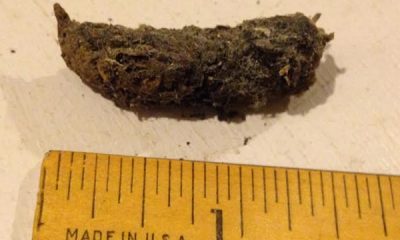
 Skunk4 years ago
Skunk4 years agoWhat Does Skunk Poop Look Like? Images & Identifications
-
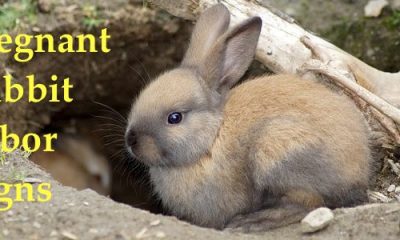
 Bunny4 years ago
Bunny4 years agoPregnant Rabbit Labor Signs #Test#Symptoms#Age#Length
-

 Turtles4 years ago
Turtles4 years ago8 Basking Rocks/ Platforms for Turtles – A Perfect Guide
-
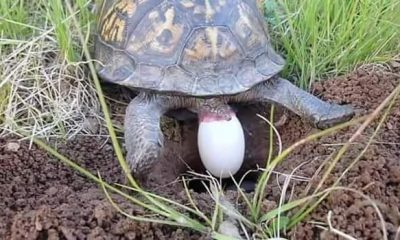
 Turtles5 years ago
Turtles5 years agoHow To Take Care of Turtle Egg At Home?
-
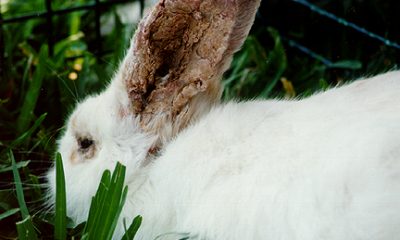
 Bunny5 years ago
Bunny5 years agoHow to Get Rid of Mites on Rabbits? #NaturalRemedies #Video
-

 Horse4 years ago
Horse4 years agoHow Much Weight Can a Horse Carry? #Clydesdale #Friesian #Mustang #Draft
-

 Turtles4 years ago
Turtles4 years agoHow to Take Care of Snapping Turtle Eggs? #Incubating #Hatching
-
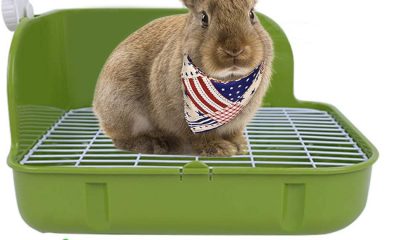
 Bunny5 years ago
Bunny5 years agoHow to Potty Train a Rabbit in House? Tips on Litter Training








